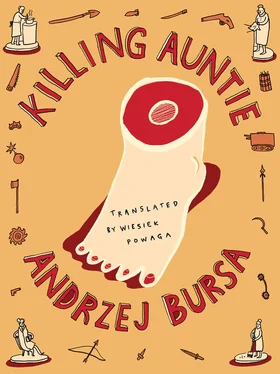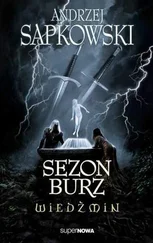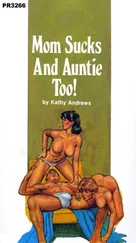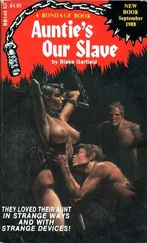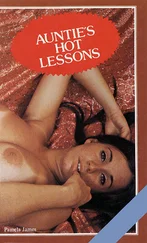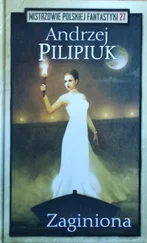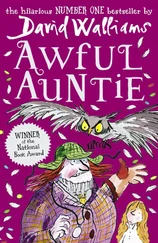A grove of tall pines was quickly getting thicker, with more firs and naked deciduous trees. The moonlight began to disappear. I felt for The Girl’s hand but found only the off-putting coarse sleeve of her coat and quickly withdrew my hand. Suddenly The Girl turned and, jumping over a ditch, stood on a high path wending among the firs. With some hesitation I followed. Seeing me undecided, The Girl beckoned and said:
“Come.”
Or maybe she didn’t say anything? We followed a slippery path, full of craters and roots. I watched my step but at some point I lost my balance and fell. The Girl stopped abruptly and when I quickly picked myself up, we moved on. At last we came to a small dell, all silvered and sheltered on all sides. The Girl turned to me and said:
“We’ll rest here.”
I didn’t quite know how to behave in this situation. I looked around the dell and hesitantly fingered my coat buttons, wondering if I should take it off and spread it out somewhere on the snow. But The Girl started rummaging around in the low firs. Bent low, she swiftly ferretted under the brush like a small tornado. After a while she returned with an armful of branches.
“Help me,” she said. “Here, hold this. Here …”
Obediently I took hold of two sharp branches.
“Now here,” ordered The Girl. “Good.”
Soon I was working like a well-trained assistant, eagerly passing the prickly branches from hand to hand. The Girl did not slow down. She no longer spoke to me, only praised my diligence or criticized my sluggishness with an eyebrow or a grimace. Before long we had a thick mat. I don’t know how long it took us to build our fir hut; at any rate I had to admit it was very warm and comfortable. Half-lying on the hard fir mattresses, we warmed up by the fire in the center of our camp. I raised my collar and stuck my hands inside my sleeves, worried that the warmth of the fire would prove illusory and the cold would start to bite. It was unnecessary. Our little house was getting warmer and warmer. Soon I was sweating like on a hot July day. Above the trees blew a sudden gust of wind. I could see thick trunks swaying a few feet away from our fire but here it was warm like in an overheated room.
The Girl took her coat off and her head scarf, yawned and began unlacing her boots. She got up and slipped them off without using her hands. I was surprised to notice that our hut, though very cozy, was nevertheless high enough for a grown woman to stand comfortably inside it. The Girl took off her trousers and sweater and lay down, wrapping herself in her coat. I looked at her in silence, swaddled in my winter coat with my raised collar and the lowered earflaps of my ski cap. The Girl wriggled for a while on her bed, then got up and moved closer. She took my face in her hands and suddenly kissed me on the mouth.
I stretched my arms out and embraced her. She started to pull away, laughing in a metallic, sinister way. Entangled in my coat, I couldn’t decide if I should take off my gloves or my helmet-like hat, or hold tight to the trophy that was slipping out of my hands. The Girl helped me. She sat close to me and soothingly stroked my face and my hands. She took my gloves off and cradled the palm of my hand to her cheek. Then she let it slide off her knees, without letting it go. She brought her face close to mine and asked:
“Are you brave?”
“I am,” I answered with conviction.
The Girl slowly raised my hand to her mouth and suddenly bit it. I grit my teeth. She held the bite with increasing force. I put my other arm around The Girl and started playing with her hair to divert my attention from the pain. She didn’t react. At last she let go. I raised my wet, teeth-marked hand to my eyes. The Girl jumped up and fell onto her bed, wrapping herself tightly in her coat.
“Watch the fire,” she called out, turned her back and almost instantly fell asleep.
I was hit by a wave of weariness too. With great effort I pulled up the sleeve of my coat to check the time. It was three in the morning. I thought of fighting sleep with a cigarette but the matches were wet and I had no strength to move closer to the fire. I just fixed my eyes on it with a firm resolve to stick it out like this till dawn. But The Girl’s presence bothered me. I stretched my hand out and felt for her. I found a soft tress of hair and a cold smooth forehead. The Girl twitched and turned around. I felt embarrassed. Our agreement was that I was supposed to watch the fire. I turned my eyes back to the fire with renewed zeal. Another gale swept over the trees. Our little hut was getting warmer. I was boiling. Once more I tried to unbutton my coat but then gave up, suddenly worried I might catch a cold. I raised myself a little and immediately crumpled like a rag doll. My eyes shut automatically, against my will.
In the morning I was woken up by the intense cold, as if I had slept outside all night. I leaped to my feet. The Girl, dressed and ready to go, was smothering the fire with snow. All around us were scattered small, broken branches: the remnants, I suspected, of our little hut. I stood forlorn and cold. I felt ashamed, before the Girl, of my helplessness and lack of discipline in watching the fire. I didn’t look great, I knew that. Without paying any attention to me, The Girl was trampling over the fire; then she bent down and threw handfuls of snow in my face.
“Catch me!” she cried cheerfully and ran off.
I started after her in hot pursuit. We ran among the trees, knocking pillows of snow from the branches, and then ran down the road. At last The Girl stopped, looked at me, and burst out laughing.
“You fell asleep last night. The fire would have gone out if I hadn’t woken up in time,” she said. “But it’s OK.”
The last sentence she pronounced softly but firmly. I stretched out my arm automatically. She took my hand and pulled me after her. We walked fast through a silent misty wood.
“There is no point in looking for a bus,” said The Girl. “My house is not far from here. I live outside the city. We’ll go to my place and have a cup of tea. We should be there in an hour.”
The wood began to grow thinner until it thinned out into groves, which I remembered from my own walks. Then on the horizon loomed the panorama of Our Town; we came out into an open space. Having passed a dirty village with huddled houses, still asleep, we turned onto a side road and after a while stopped before a big rusty gate. The Girl unhooked the chain and we entered a wildly overgrown, neglected park. Next to the gate, among the trees, stood a long yellow building, which looked like a warehouse or a coach house, but was empty. Farther on, along the alley, we came to some concrete foundations and empty swimming pools. Then again thick shrubs, almost completely covering the narrow path under our feet. Finally, we stopped before a barricade of empty, rusting cages. The heap of scrap was interlaced with tree branches; in the summer it must have created an impenetrable, iron-green fortification. The Girl pulled me again and we went inside a huge concrete tunnel, about six feet high.
After a few echoing steps we came out on the other side of the barricade. From the back it didn’t look so fierce. Straight away my eye spied in the heap of creaky old iron a few weak spots through which one could easily sneak back onto the other side. We walked on among empty pens, cages and concrete ditches. When we passed a low hedge it was clear we were in a zoo. At first glance it didn’t look much different from the junkyard we’d just passed. The animals sat inside their boxes, the floors of their cages covered with piles of snow. Only an old vulture flapped his wings in the nearest cage, and the black silhouette of a doe hovered above an iron fence. I remembered that I had once been in a zoo at this hour and wanted to tell The Girl, but as soon as I opened my mouth she shook her head sternly and silenced me. She took me by the hand and whispered into my ear:
Читать дальше
